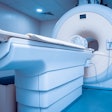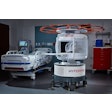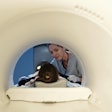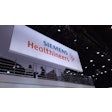
Since 2000, the volume of MRI procedures in the U.S. has increased annually by double digits, achieving 114% growth by 2013. Unfortunately, there has been a fivefold increase in the number of MRI adverse events and accidents during those same years.
Now, two longtime advocates of MR safety are looking to reverse this trend by creating the American Board of Magnetic Resonance Safety (ABMRS) to craft and standardize testing and certification for MR safety competence.
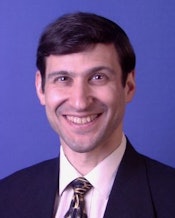 Dr. Emanuel Kanal, director of MR services at University of Pittsburgh Medical Center.
Dr. Emanuel Kanal, director of MR services at University of Pittsburgh Medical Center.ABMRS would validate the proficiency of physicians, technologists, and other staff who oversee MR safety in both clinical and research environments. Applicants who successfully pass the board's test would carry the designations of MR safety physician (for the radiologist and/or medical director; MRMD), MR safety officer (MRSO), and/or MR safety expert (MRSE).
The board is the brainchild of Dr. Emanuel Kanal, director of MR services at the University of Pittsburgh Medical Center, who serves as chair of ABMRS. The board's vice chair is Max Amurao, PhD, a medical physicist and director of radiation safety for clinical programs at Columbia University/NewYork-Presbyterian Hospital.
Kanal has promoted MRI safety individually and collaboratively for many years with Tobias Gilk, senior vice president of Radiology-Planning and founder of Gilk Radiology Consulting, who also serves as ABMRS' secretary/treasurer.
Kanal began to lay the groundwork for the certification board in the second half of 2014 by outlining goals for the organization and inviting colleagues with MRI knowledge and safety expertise to join the initiative.
International initiative
The ABMRS is partnering with the International Society for Magnetic Resonance in Medicine (ISMRM) to define the job descriptions of the various safety officials.
 Tobias Gilk, senior vice president of Radiology-Planning and founder of Gilk Radiology Consulting.
Tobias Gilk, senior vice president of Radiology-Planning and founder of Gilk Radiology Consulting."We want to develop and establish an international consensus as to what those positions do and what roles they will serve," Gilk said.
"We wanted to do something far beyond us," Kanal added. "Our objectives, quite frankly, are not to make this solely American, but to make this an international consensus for what these positions are and how we will be testing them. So the American Board of MR Safety from the very beginning is composed of international societies and organizations, individuals, and safety experts who will ensure that we are building an international consensus and final product that can be used anywhere, should any country, society, or organization wish to implement it immediately."
According to the U.S. Food and Drug Administration's (FDA) Manufacturer and User Facility Device Experience (MAUDE) database, there were 182 adverse events in 2013, compared with 31 reported MRI accidents in 2000 -- a spike of 487%.
Gilk quoted a line from Kanal to hammer home the point about the disconcerting trend of MRI accidents and adverse events: "Show me another industry where the more we know about risks and the more we know about prevention, the worse we do in terms of protecting people from the known risks," Gilk said.
"We know the equipment is exceptionally well-designed, and the sites, the hardware, and the software undergo an accreditation process," Kanal said. "When we looked at [the trend of adverse events], we found that the only thing that was not being cared for was the person who was supposed to be overseeing [safety]."
| MRI adverse events | |||||
| Year | Reports | Accident % change from 2000 | Procedure numbers1 | Utilization % change from 2000 | |
| 2000* | 31 | 0% | 15.8 | -- | |
| 2001* | 40 | 29% | 18 | 14% | |
| 2002* | 55 | 77% | 21.9 | 39% | |
| 2003* | 46 | 48% | 24.2 | 53% | |
| 2004** | 40 | 29% | 24.7 | 56% | |
| 2005** | 80 | 158% | 25.3 | 60% | |
| 2006** | 83 | 168% | 26.6 | 68% | |
| 2007** | 116 | 274% | 27.5 | 74% | |
| 2008** | 167 | 439% | 28.4 | 80% | |
| 2009** | 194 | 526% | 29.3 | 85% | |
| 2010** | 169 | 445% | 30.2 | 91% | |
| 2011** | 186 | 500% | 32 | 103% | |
| 2012** | 169 | 445% | 32.9 | 108% | |
| 2013** | 182 | 487% | 33.8 | 114% | |
**MAUDE data retrieved October 8, 2014
1IMV Medical Information Division. Numbers in millions.
There has been great interest in MRI safety seminars hosted by Kanal last year, produced by Northwest Imaging Forums. Last October, their MRI safety conference held in the Washington, DC, area attracted more than 200 attendees, and some people had to be turned away.
"People wrote us later that their efficiency increased -- not just their safety -- because they had a much better grasp about what to do with patient implants and their potential effect when scanned," Kanal said.
Imaging centers also seem to be getting the message about the importance of MR safety. Kanal recalled a recent conversation with an individual whose institution recently purchased several MRI scanners. The facility stipulated in the purchase agreement that for each magnet acquired, the MRI vendor would pay for one physician and one technologist to attend an MRI safety education course so they could manage and maintain the device properly.
Safety seminars abroad
Kanal expects more than 200 attendees at their MRI safety conference in Israel this week, and more than 225 people have registered for their event in Sydney, Australia, on March 1. A third MRI safety seminar is scheduled for Malta in October.
To be clear, Kanal's involvement with the safety seminars and ABMRS are independent of one another.
"The intention from the outset has always been to let the professional community provide the training and test preparation or whatever it feels is appropriate and effective," Gilk said. "It is the intention of the ABMRS to publish the test criteria so that everybody knows the subject matter to have proficiency in order to pass the exam. If you want to get educational training from provider A, B, or C, or whoever is offering training in this area, by all means, be our guest."
Kanal also emphasized that there is no requirement today for a person to attend an educational seminar to become certified in MRI safety.
"You can do your own due diligence and study on your own, or you might just be a natural genius," he added. "It makes no difference. If you can document that you understand the material and know how to apply it in the clinical setting, you will meet the requirements."
ABMRS is currently working on the content for the proficiency test, which will likely be administered by a third-party entity.
"We are seeing a tremendous response for the credentialing process," Gilk said. "It is our intention that we will make testing available a dozen or more times per year in the U.S." The first test is expected to take place in 2016.
Gilk and Kanal hope that the inaugural test will be a milestone in improving MR safety around the world.

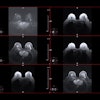
.fFmgij6Hin.png?auto=compress%2Cformat&fit=crop&h=100&q=70&w=100)
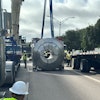

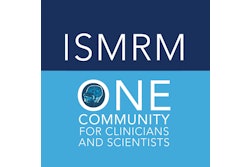

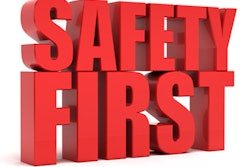
.fFmgij6Hin.png?auto=compress%2Cformat&fit=crop&h=167&q=70&w=250)





